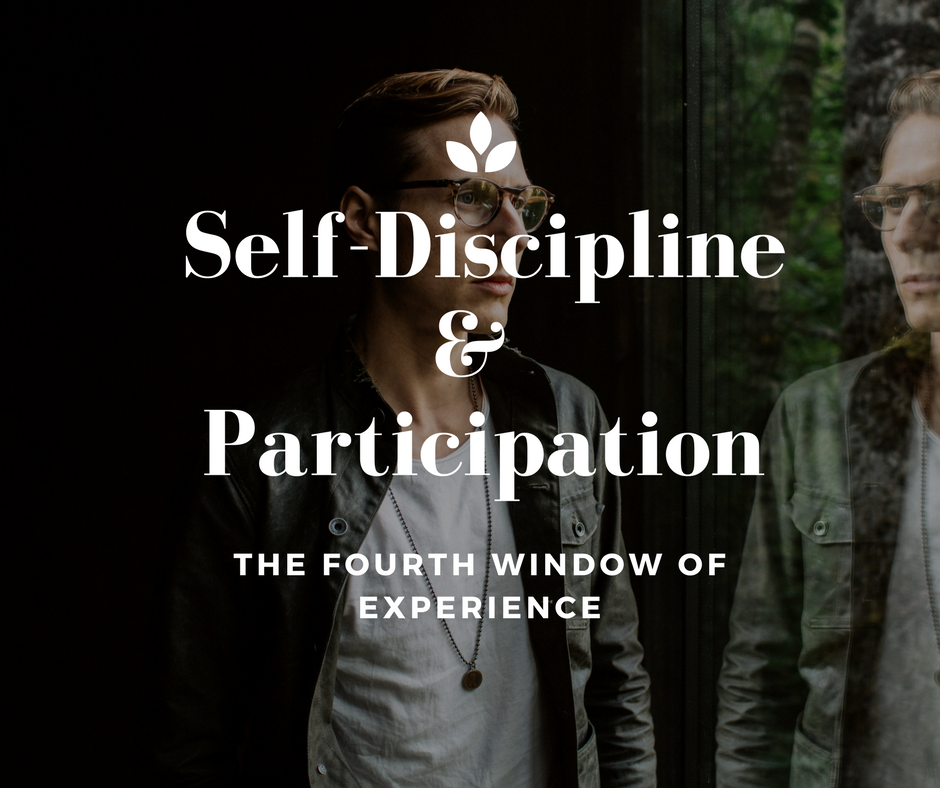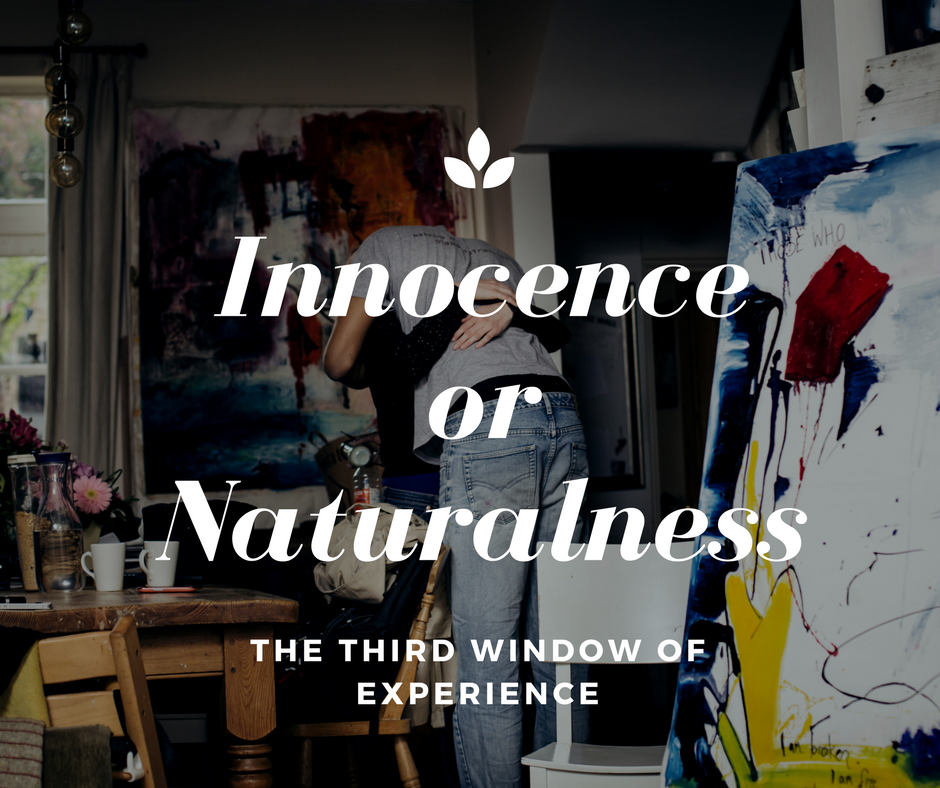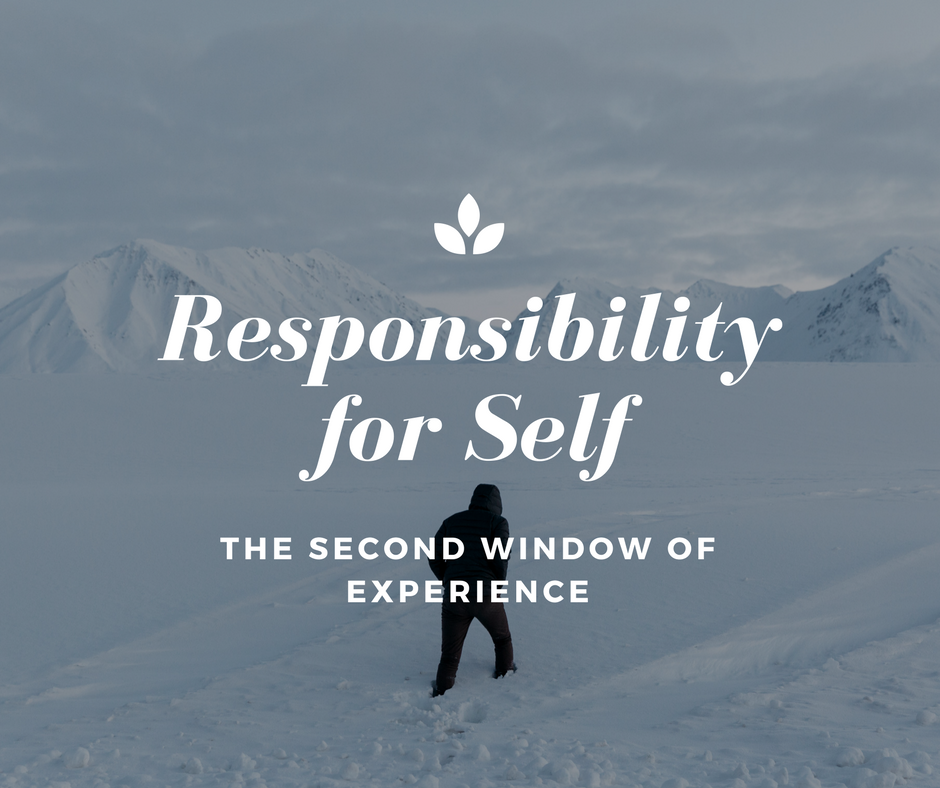|
The fifth window of experience is congruence. It is an essential quality of self. Congruence means personal harmony. More concretely it refers to the harmonious integration of a person's thoughts, feelings and behaviors. The absence of such harmony characterizes all forms of self-diminishment. If our thinking is different from our feeling, then our personalities are literally split. If we are angry at our lover about doing something for him, but we do it because we think we are being helpful to him, we are diminished as persons. If our behavior does not honestly reflect how we think and feel, then we are not really ourselves. These incongruences or disharmonies in people are a substrate of all personal psychological "illnesses." The experience of living in the harmony of thought, feeling and behavior is essential to the healthy self. It is the true being of being in the world in good faith. Congruence is most commonly referred to as integrity.
Taken from The Windows of Experience by Malone and Malone
1 Comment
The fourth window of experience is self-discipline or participation. "The notion of looking on at life, " wrote Antoine de Saint-Exupery in Flight to Arras, "has always been hateful to me. What am I if I am not a participant? In order to be, I must participate." Young children accept the authority of their parents. They listen for a variety of reasons, perhaps out of fear, but just as likely out of respect. Either way, children listen with deference, and thus the voice of conscience is established. Such a voice, though necessary, leaves growing persons with the subsequent labor of establishing their own voices. Yet only through that process can they determine how they will participate in the world. They may well adopt many of their parents' values. But by first questioning them and then finally choosing them, they make the values their own.
They will then be listening to themselves with self-discipline and becoming their own persons. That is literally what self-discipline means: to follow ourselves out of love and respect for ourselves. It is not enough to simply listen to ourselves; we must follow ourselves because we love ourselves. This ensures that love will be included in all our behavior, so that we are more apt to do what we will like and respect ourselves for doing. Being self-full is the best guardian against being selfish. The opposite of self-discipline is abject subservience to some other--a voice from outside of ourselves--as the basis of our conscience. Someone other than ourselves decides how we are to be in the world. Our commitment in life becomes rote, a robotic compliance to external dictates from, for example, a rigid church, a totalitarian state, a nationalistic fervor, a corporate culture, or more directly, a needy spouse or lover. Such living is self-diminishing. The opposite of self-discipline is fearful, or dutiful, obedience to another. Only when the choice is freely ours--even when our choice is no different from what the other said it should be--are we being in the world in good faith. Only then do we participate in life as ourselves. Taken from The Windows of Experience by Malone and Malone The third window of experience is innocence or naturalness. Innocence does not mean naivete. I means the delight of the person with his or her experience of belonging to the connected mosaic of the world he or she lives in. It is childlike but not childish. An openness to experiencing permeates innocence. It renders us free and creative, risking and curious, sensual and sexual without contrivance or need to manipulate or exploit. We are joyful and continually learning from the other. Without constructing a world of our own, one that we so often mistakenly believe will better allow us to be who we are, we share ourselves. When we do not rejoice in the energy of the surrounding real world, we become a world unto ourselves, and, sterile and stagnant, we become mired in it.
Taken from The Windows of Experience by Malone and Malone The second window of experience is responsibility for self. No one else can be for us. We are in the world as we want to be. We may despise it, decry it, or complain mightily about it, but we are responsible for our living, for our self-being. We have to accept the fact that we live as we choose, however we lament that living. We are responsible for what e have become or have not become. This window clears when we accept the terrible but beautifully freeing realization that we must take the initiative for what we want and who we are. That acknowledgment frees us to experience and enables being. The opposite of self-responsibility is dependence and blame, in which our lives are turned over to others. Unhealthy dependency and blaming of others for who we are guarantees a lack of wholeness. If we are not responsible for our own selves, how can we ever envision being fully who we are?
Taken from, The Windows of Experience by Malone and Malone. The first window of experience is acceptance. It is a wide and beautiful window to experience, with impressive precedents. Jesus said to accept and love the sinner while you condemn the sin. The is acceptance. Buddha said we must accept and love the sinner and know that sinning is simply a part of life. That is acceptance. If we realize that neither Jesus nor Buddha were passive beings, that they were in fact passionately confrontative beings, then we begin to sense the vitality of acceptance. It is not simply a matter of being resigned or forgiving. It is instead an active part of love and nature. Unable to accept, we are unable to know ourselves.
We accept so that we may go on to experience with the other without the estrangement of judgment. Blaming others for being who they are ends meaningful relationships. Criminals should be judged, not lovers or friends. Judgment separates us from further experience. Judgmentalism is clearly the polar opposite of acceptance and ultimately engenders self-diminishment. Taken from: The Windows of Experience by Malone and Malone. |
Jake Thiessen, PhDI've been working with couples for a very long time. And, I love it! This blog is my attempt to communicate some of the things I've learned over the past 40 years. Archives
October 2020
Categories |







 RSS Feed
RSS Feed